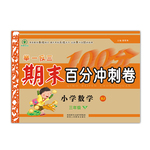题目内容
【题目】阅读短文,从每题所给的四个选项(A、B、C和D)中,选出最佳选项。
For anyone still doubting the belief that our emotions influence our physical health, a new study from New Zealand should be able to settle the matter. It reports that the physical wounds of healthy seniors healed more quickly if they wrote about their most upsetting experiences.
This confirms the results of a 2010 study, and extends those findings to cover older adults—a group that is likely to suffer wounds (as from surgery), and one with less access to other ways of lowering tension (such as exercise).
Reported in the journal Psychosomatic Medicine, a research team led by the University of Auckland's Elizabeth Broadbent made a study featuring 50 healthy adults ranging in age from 64 to 97. They were asked to write for 20 minutes per day for three consecutive (连续的) days.
Half were asked to write about the most upsetting experience in their life, describing their deepest thoughts, feelings, and emotions about the events, ideally not previously shared with others. The others were asked to write about their daily activities without mentioning emotions, opinions or beliefs.
Two weeks after the third day of writing, all participants received a standard 4mm skin biopsy (皮下活体组织检查) on their inner arm. The very tiny wounds caused by the biopsy were photographed regularly over the following days to determine the rate at which they healed.
On the 11th day after the biopsy, the wounds completely healed on 76.2 percent of those who had done the expressive writing. That was true of only 42.1 percent of those who had written about everyday activities.
“The biological and psychological mechanisms (机体) behind this effect remain unclear,” the researchers wrote, noting that those who had done the expressive writing did not report lower stress levels or fewer depressive symptoms than the others in the control group. Even if they weren't consciously aware of feeling more relaxed or positive, the expressive writing appeared to have caused some sort of bodily reaction—probably involving their immune systems—that hastened their recovery.
(1)What was the difference between the two groups of participants in the study?
A.What they wrote.
B.Where they wrote.
C.When they wrote.
D.How often they wrote.
(2)According to the text, the experiment lasted __________.
A.about three days
B.about a month
C.about two weeks
D.about ten days
(3)The underlined word “hastened” in the last paragraph is closest in meaning to _______.
A.speeded
B.showed
C.limited
D.ruined
(4)What would be the best title of the text?
A.Sharing with others can reduce stress.
B.Skin biopsies are likely to cause wounds.
C.Expressive writing heals physical wounds.
D.Upsetting experiences influence our emotions.
【答案】
(1)A
(2)B
(3)A
(4)C
【解析】本文是一篇说明文,通过介绍一个科学实验告诉我们精神对身体健康有很大的影响,进一步证明了两者是相关联的观点。
(1)考查细节理解。根据第四段内容可知,参加测试的对象中有一半被要求写出他们最难受的经历,最深层的感受。另外一半被要求写出日常活动但是不要提到情绪方面的内容。可知这两群人的要求是不一样的。故A正确。
(2)考查细节理解。根据第三段中的“They were asked to write for 20 minutes per day for three consecutive (连续的) days.”先连续写三天;第五段中的“Two weeks after the third day of writing, all participants received a standard 4mm skin biopsy (皮下活体组织检查) on their inner arm.”两周以后继续皮下活体组织检查;以及第六段中的“On the 11th day after the biopsy, the wounds completely healed on 76.2 percent of those who had done the expressive writing.” 活体组织检查11天以后检测伤口愈合程度。加起来大约是一个月的时间。故B正确。
(3)考查词义猜测。根据倒数第二段可知,被要求写出内心深层感受的人的伤口愈合得更快,这正可以说明精神对身体是有很大影响的。再根据划线词所在句子可知,在他们无意识的情况下,表达情绪的写作可以导致免疫系统的做出回应——加快伤口的恢复。所以该词应该和A项speeded“加速,加快”意义一致。
(4)考查主旨大意。根据第一段“For anyone still doubting the belief that our emotions influence our physical health, a new study from New Zealand should be able to settle the matter. It reports that the physical wounds of healthy seniors healed(愈合) more quickly if they wrote about their most upsetting experiences.”可知本文主要是关于表达内心感受的写作可以帮助老年人很快地愈合。故C正确。

 举一反三期末百分冲刺卷系列答案
举一反三期末百分冲刺卷系列答案【题目】选词填空
as if; in memory of; look forward to: hold one's breath, play a trick on |
(1)She looks she were ten years younger.
(2)He me to make me believe what he said.
(3)We attending next week's opening ceremony of the art festival.
(4)The Dragon Boat Festival is Qu Yuan.
(5)The audience as the acrobat walked along the tightrope.
